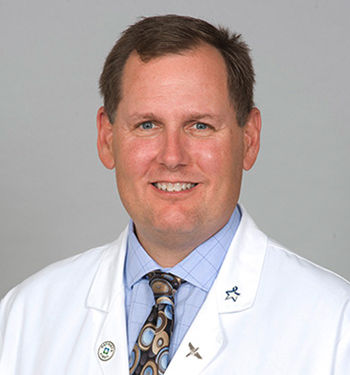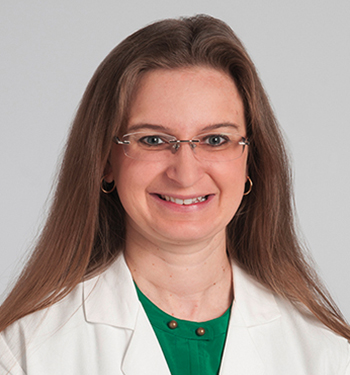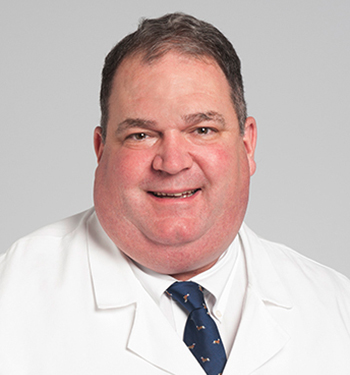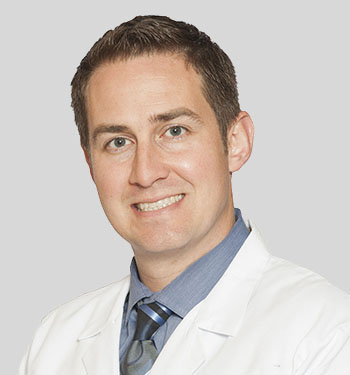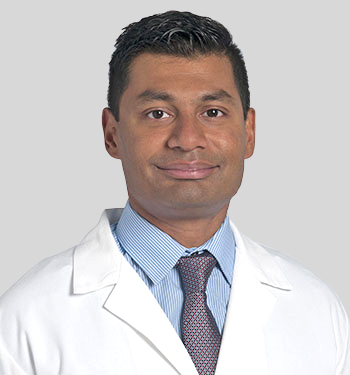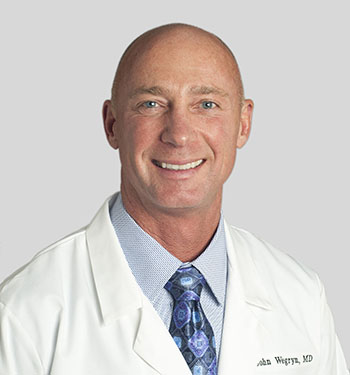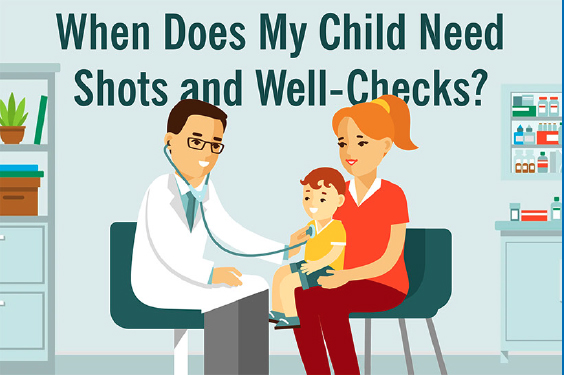General surgeons offer convenient treatment for common medical and surgical concerns.
“Being community-based, we see a wide variety of patients. Some of them may never require a surgical procedure, but when they do, we have all the resources they need close to home. The patients we treat are our friends and neighbors,” says Richard Guttman Jr., MD, a general surgeon who treats patients at Cleveland Clinic Medina Medical Office Building and Wooster Milltown Specialty and Surgery Center; he also performs surgeries at Cleveland Clinic Medina Hospital.
“Part of the reason I chose to practice in a more rural community is the ability it gives me to build continuity with patients,” adds Dr. Guttman. “By and large, my patients come to me for one problem, then keep coming and also refer their family members. Having been here for 20 years, my patients and I are growing older together.”
Common health issues that can lead to the need for surgery include gallstones, hernias, appendicitis, colon cancer and breast cancer.
Gallbladder Surgery
Appendectomy
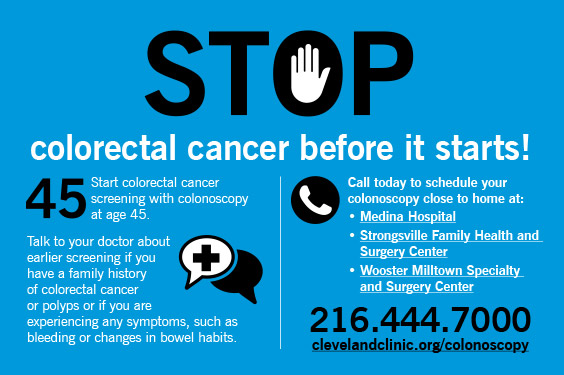
Hernia Repair
“While some hernias don’t cause symptoms and no treatment is needed, some patients avoid treating their hernias because they fear painful surgery,” says Daniel Peabody, III, MD, a general surgeon at Medina Hospital and Wooster Milltown Specialty and Surgery Center. “However, hernia surgery is often performed robotically on an outpatient basis with a minimal recovery period.”
Colorectal Cancer Surgery
Colorectal cancer occurs when the cells that line the colon or the rectum become abnormal and grow out of control and polyps develop. Because symptoms often do not appear until the cancer is advanced, it is important to have regular colorectal cancer screenings (colonoscopies).
.
Part of the reason I chose to practice in a more rural community is the ability it gives me to build continuity with patients.
Richard Guttman Jr., MD
Your men’s urological cancer team
A team-based approach to addressing men’s urological cancer concerns in Medina and the surrounding communities is provided by Dr. Krishnan, along with Michael Gangel, Jr., MD, and John Wegryn, MD.
“A colonoscopy can save your life. If done early, it is the only screening that can prevent colon cancer,” says Cathleen Khandelwal, MD, a general surgeon who treats patients at Cleveland Clinic Strongsville Family Health and Surgery Center. “As of 2021, it is recommended that adults have their first colonoscopy at age 45, because the majority of colorectal polyps occur after this age. But those with a family history of colon cancer, or those who experience symptoms such as pain, bleeding or a change in bowel habits, should begin having them earlier.”
Many people put off the procedure because they are anxious about the bowel prep required prior to a colonoscopy or worry about discomfort during the procedure. However, bowel preps have become easier and most patients are very comfortable and have no recollection of the procedure.
“Simple stool tests can help detect colon cancer, but they can’t remove it if something is found. There is no better option these days than colonoscopy,” says Dr. Khandelwal.
Colorectal cancer is treated based on the stage of the cancer. Treatment options can include the use of surgery, chemotherapy and radiation. General surgeons perform colonoscopies and also perform surgery for the treatment of colorectal cancer.
Breast Cancer Surgery
“Much of my surgical practice is related to breast cancer,” says Dr. Peabody. “Women are understandably uncomfortable when seeing a surgeon for the first time, so I do everything I can to make them understand their diagnosis, how we’re going to go about treating them, and the process for surgery if needed. While surgeons like to be in the operating room, a big part of what we do is educating our patients in the office, setting them up so they can have a successful surgery.”
Dr. Peabody first meets women after they have a mammogram that shows an abnormality. Access to the latest technology ensures that if an ultrasound or biopsy is needed, it can be done at the Wooster Milltown Specialty and Surgery Center followed by a diagnosis within just a couple of days.
If a biopsy is positive and breast cancer surgery is needed, options include a lumpectomy or mastectomy.
“The decision as to where to have breast cancer surgery is patient-driven. Many patients want to stay close to home, but others prefer to receive care from a breast specialist. We have great relationships with the breast surgeons at main campus and other Cleveland Clinic locations, and are able to seamlessly transfer care when needed,” says Dr. Peabody.
Interested in learning more about Integrative and Lifestyle Medicine?
Medical referrals aren’t necessary and virtual appointments are available for many services offered through Integrative and Lifestyle Medicine. Most insurance companies cover Integrative and Lifestyle Medicine care, but check with your provider about your coverage.
Don’t put off routine healthcare.
Whatever the concern or diagnosis, Cleveland Clinic providers urge everyone to be proactive when it comes to their health.
Preventive screenings – including colonoscopies and mammograms – are often the start of long-term relationships between patients and providers.
- Colonoscopy — A colonoscopy is the only screening that can prevent cancer. A painless, outpatient procedure, colonoscopy can be performed by general surgeons. It is recommended that adults have their first colonoscopy at age 45. Those with a family history of colon cancer, or those who experience symptoms such as pain, bleeding or a change in bowel habits, should begin having them earlier.
- Mammography — Cleveland Clinic’s screening guidelines include:
- All women should review their specific risk factors for breast cancer with their providers and together decide when to start and how often to screen for breast cancer.
- All women should have the opportunity to start screening mammography at age 40.
- For women ages 45-55, Cleveland Clinic recommends annual screening mammograms.
- For women ages 55 and over, Cleveland Clinic supports both the transition from an annual to a biennial interval if this aligns more with patient’s values and preferences, or continuation with annual screening.
- All women should discuss with their providers when to stop screening mammograms.
“Over the past year, people have been putting off necessary screenings or avoiding going to the doctor with early symptoms of gallbladder disease, appendicitis, hernia and other diseases. Unfortunately, those delays have led to us seeing more advanced and difficult cases,” says Dr. Peabody. “It’s time for everyone to take their healthcare into their own hands and start doing the routine things that are going to make a positive difference in the long run.”
Cleveland Clinic has taken every precaution to ensure the safety of our patients, providers and employees during the ongoing COVID-19 pandemic.
Cleveland Clinic locations in southern Cuyahoga County, Medina and Wayne counties offer comprehensive surgical services provided by highly-skilled surgeons who specialize in inpatient and outpatient procedures.
To schedule an appointment with a Cleveland Clinic surgeon, call:
Brunswick: 330.225.8886
Medina: 330.721.5700
Strongsville: 440.878.2500
Wooster: 330.287.4500

